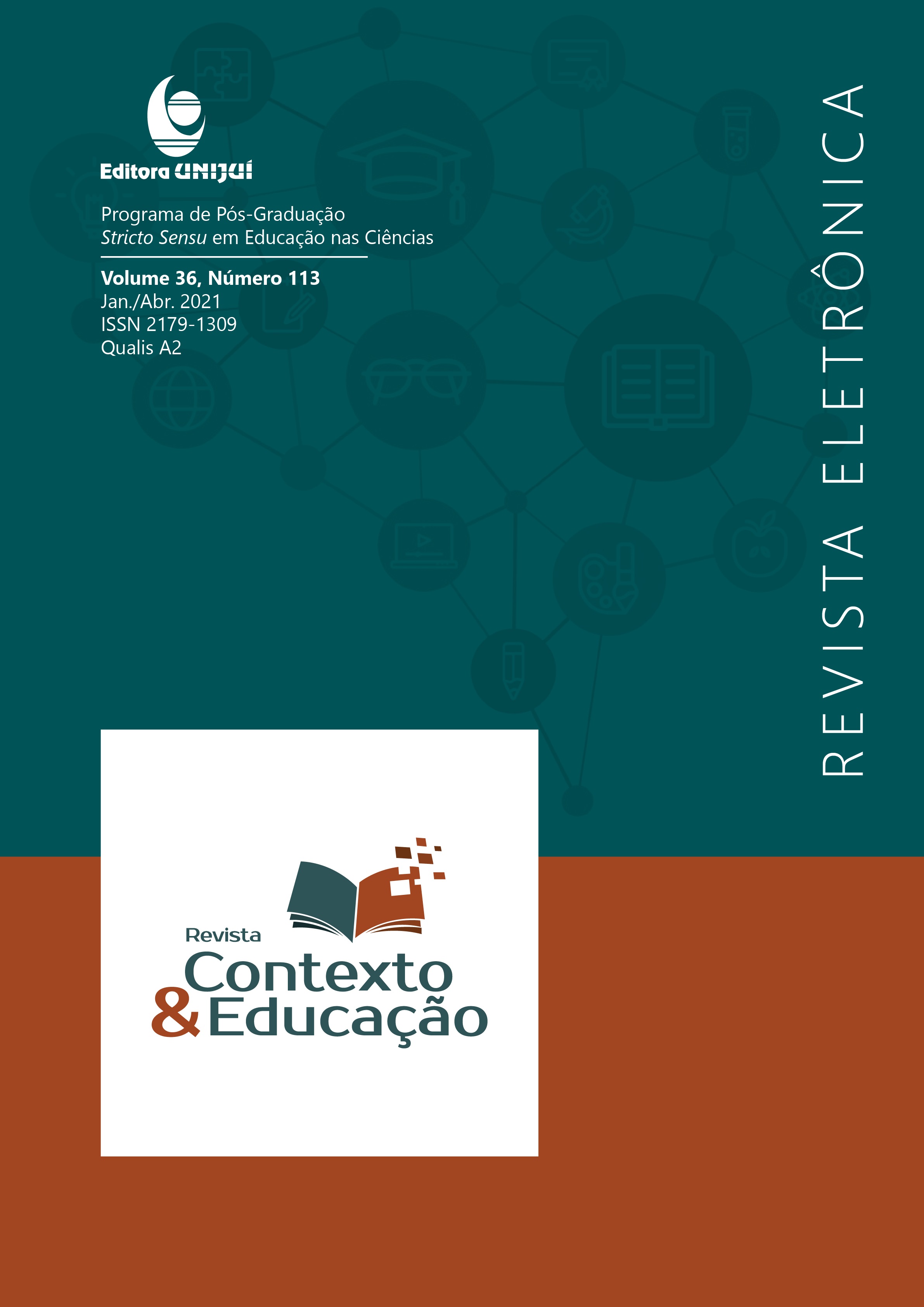TECNOLOGIAS MÓVEIS NA EDUCAÇÃO: UM PROJETO COM TABLETS NA ESCOLA PÚBLICA
DOI:
https://doi.org/10.21527/2179-1309.2021.113.267-281Palavras-chave:
Política Pública, Tablets na Educação, Tecnologia Educacional, Educação básica, Tecnologias móveisResumo
O objetivo do artigo é analisar o processo de implementação do projeto 'Tecnologias Móveis: inserção dos tablets na educação' em duas escolas públicas da rede municipal de Educação de Salvador, Bahia. Utilizamos a abordagem qualitativa, o método descritivo, a metodologia de pesquisa de campo e como técnica de observação, a entrevista. Colaboraram como sujeitos da pesquisa oito indivíduos e os dados foram avaliados sob a orientação da análise de conteúdo. Como resultados, três eixos emergiram das entrevistas: a. Elementos descritivos do projeto; b. O tablet na sala de aula e c. Avaliação do projeto. As análises destacam a importância do protagonismo do professor e do aluno. O estudo considera que o projeto foi importante para a aprendizagem dos estudantes, mas a infraestrutura adequada para a sua realização foi precária e precisa ser melhorada e ampliada.
Downloads
Publicado
Como Citar
Edição
Seção
Licença
Ao publicar na Revista Contexto & Educação, os autores concordam com os seguintes termos:
Os trabalhos seguem a licença Creative Commons Atribuição 4.0 Internacional (CC BY 4.0), que permite:
Compartilhar — copiar e redistribuir o material em qualquer meio ou formato;
Adaptar — remixar, transformar e criar a partir do material para qualquer fim, inclusive comercial.
Essas permissões são irrevogáveis, desde que respeitados os seguintes termos:
Atribuição — os autores devem ser devidamente creditados, com link para a licença e indicação de eventuais alterações realizadas.
Sem restrições adicionais — não podem ser aplicadas condições legais ou tecnológicas que restrinjam o uso permitido pela licença.
Avisos:
A licença não se aplica a elementos em domínio público ou cobertos por exceções legais.
A licença não garante todos os direitos necessários para usos específicos (ex.: direitos de imagem, privacidade ou morais).
A revista não se responsabiliza pelas opiniões expressas nos artigos, que são de exclusiva responsabilidade dos autores. O Editor, com o apoio do Comitê Editorial, reserva-se o direito de sugerir ou solicitar modificações quando necessário.
Somente serão aceitos artigos científicos originais, com resultados de pesquisas de interesse que não tenham sido publicados nem submetidos simultaneamente a outro periódico com o mesmo objetivo.
A menção a marcas comerciais ou produtos específicos destina-se apenas à identificação, sem qualquer vínculo promocional por parte dos autores ou da revista.
Contrato de Licença (para artigos publicados a partir de outubro/2025): Os autores mantém os direitos autorais sobre seu artigo, e concedem a Revista Contexto & Educação o direito de primeira publicação.


